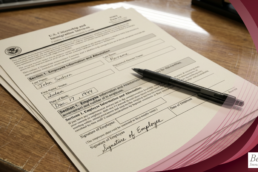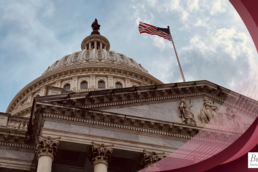With the Department of Labor’s launch of Project Firewall, H-1B employers are under greater scrutiny than ever. This enforcement initiative, announced on September 19, 2025, signals a shift from complaint-driven oversight to proactive investigations. Employers that sponsor H-1B workers, or place them at third-party worksites, must now treat compliance as a top priority.
Below are compliance best practices that can help companies avoid costly penalties, protect their workforce, and prepare for potential audits or site visits.
Compliance Tips for H-1B Employers
Ensure all Labor Condition Applications (LCAs) accurately reflect job data, including title, wage level, and work location, and confirm that wages meet or exceed the prevailing wage for the area.
Maintain complete and up-to-date Public Access Files (PAFs) for each H-1B worker, including required documentation such as the LCA, wage records, and notice of filing.
Avoid displacing U.S. workers by ensuring no qualified U.S. employees were terminated or replaced in connection with H-1B hiring. H-1B-dependent employers and willful violators are prohibited from laying off U.S. workers in essentially equivalent jobs within 90 days before or after filing an H-1B petition or placing an H-1B worker at a secondary worksite.
Maintain thorough records and respond promptly to any inquiries or audits initiated by the Department of Labor.
Comply with third-party placement rules by documenting the specialty occupation, providing contracts or statements of work, and ensuring job duties align with the petition.
Retain full control over employment decisions for H-1B workers, including hiring, supervision, and compensation, to avoid co-employment violations.
Monitor for signs of willful violations, such as wage underpayment or misrepresentation of job duties, and implement internal controls to prevent recurring issues.
Compliance Tips for Outsourcing Firms That Place H-1B Workers at Third-Party Sites
Review contracts and work orders to ensure all agreements clearly define job roles, work locations, and durations, and include clauses requiring vendors to comply with H-1B regulations and provide documentation upon request.
Request transparency from vendors by asking for Labor Condition Applications (LCAs), wage records, job descriptions, and proof of employer-employee relationships for each H-1B worker.
Conduct periodic internal audits to verify that vendor-supplied workers are performing duties consistent with their visa petitions and are being paid prevailing wages.
Prepare for potential DOL or USCIS site visits by maintaining organized documentation, including contracts, LCAs, timesheets, and wage records, and designating a point of contact for compliance inquiries.
Avoid co-employment risks by ensuring your organization does not directly supervise vendor-supplied H-1B workers or make decisions regarding their employment.
Monitor for red flags such as undocumented changes in worksite, wage discrepancies, or vendors unwilling to share compliance documentation.
Include indemnification clauses in vendor contracts to protect your organization from penalties or legal exposure resulting from vendor noncompliance.
Why Compliance Matters More Than Ever
Project Firewall empowers the Department of Labor to certify investigations at the highest level and coordinate with USCIS, DOJ, and EEOC. Employers that fail to meet H-1B requirements could face back wage orders, civil fines, and even debarment from the program.
Jennifer Behm, Esq., Partner at Berardi Immigration Law, notes:
“With Project Firewall, compliance is no longer a box-checking exercise, it’s a business necessity. Employers will have to be proactive in reviewing their policies, records, and vendor relationships before the government comes knocking.”
FAQs on H-1B Employer Compliance
How long should employers keep H-1B records?
Employers must retain LCAs and supporting documentation for at least one year beyond the last date an H-1B worker is employed under the LCA, and wage records for the duration of employment plus three years.
Can the DOL conduct site visits without notice?
Yes. As part of Project Firewall, unannounced site visits are expected. Employers should have documentation ready and designate a point of contact for inquiries.
Do compliance rules differ for third-party placements?
Yes. Employers must prove they maintain control over H-1B workers, even when placed at client sites, and ensure vendors meet all H-1B obligations.
Where Should Your Company Start With H-1B Compliance?
Project Firewall represents a new era of H-1B enforcement. Employers that take compliance seriously, by maintaining accurate records, auditing practices, and monitoring vendor relationships, will be better positioned to withstand scrutiny.
If your company sponsors H-1B workers or partners with outsourcing firms, now is the time to act. Berardi Immigration Law can help you audit your practices, identify risks, and build a compliance framework that protects both your workforce and your business. Contact us today to schedule your consultation.
Ready to have Berardi on your side?
Whether you’re a business looking to hire or a professional hoping to relocate, immigration law can be complicated. But you don’t have to do it alone. Put our experience to work for you.



